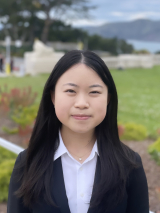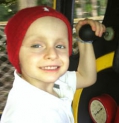Characterizing the interplay between MYC and the polycomb repressive complex in group 3 medulloblastoma

Mentor Name: Zulekha Qadeer
Medulloblastoma (MB) is one of the most prevalent and malignant brain tumors in children with tremendous cognitive and neuroendocrine disability among survivors. Group 3 (G3) MBs are heterogeneous, show poor overall survival rates (<50%), frequently metastasize to the leptomeninges, and have no targeted therapies. Notably, amplifications of both MYC and TGF? effectors are common in G3MB, and we previously found that the combination of TGFß effectors and MYC led to more drug resistance in vitro and aggressive tumors in vivo. To decipher mechanisms of resistance, we investigated MYC genomic localization with expression analysis via RNA-seq, discovering a subset of MYC-bound genes upregulated in MYC and TGFß-driven lines that are targets of the histone demethylase KDM2B and Polycomb Repressive Complex 2 (PRC2) member SUZ12. This suggests that PRC deregulation is a key component driving tumor resistance in MYC- and TGF?-driven G3 tumors. The goal of this study is to broaden our preliminary findings and generate neuroepithelial stem cell (NESC)-based models knocking down KDM2B (ncPRC1), RING1A (cPRC1), EZH2 (PRC2) with CRISPR/Cas9 technology in the presence or absence of MYC. We will evaluate effects of knockdown on proliferation, the epigenetic landscape, and tumor initiation in vivo. We will also perform co-immunoprecipitation experiments in control and MYC-driven NESCs to pulldown for PRC core members EZH2 and RING1A and determine whether PRC composition is altered by MYC transformation.

